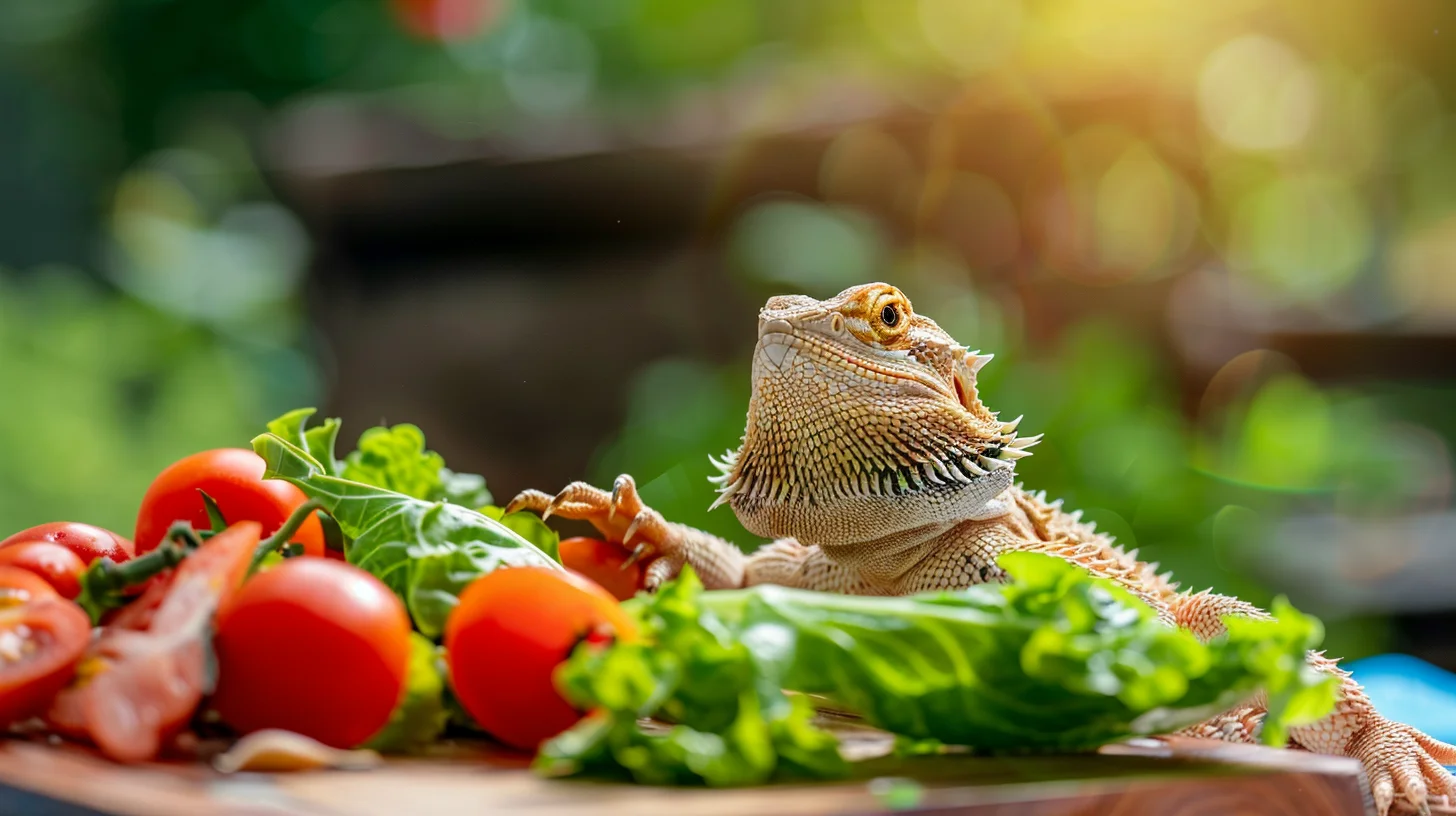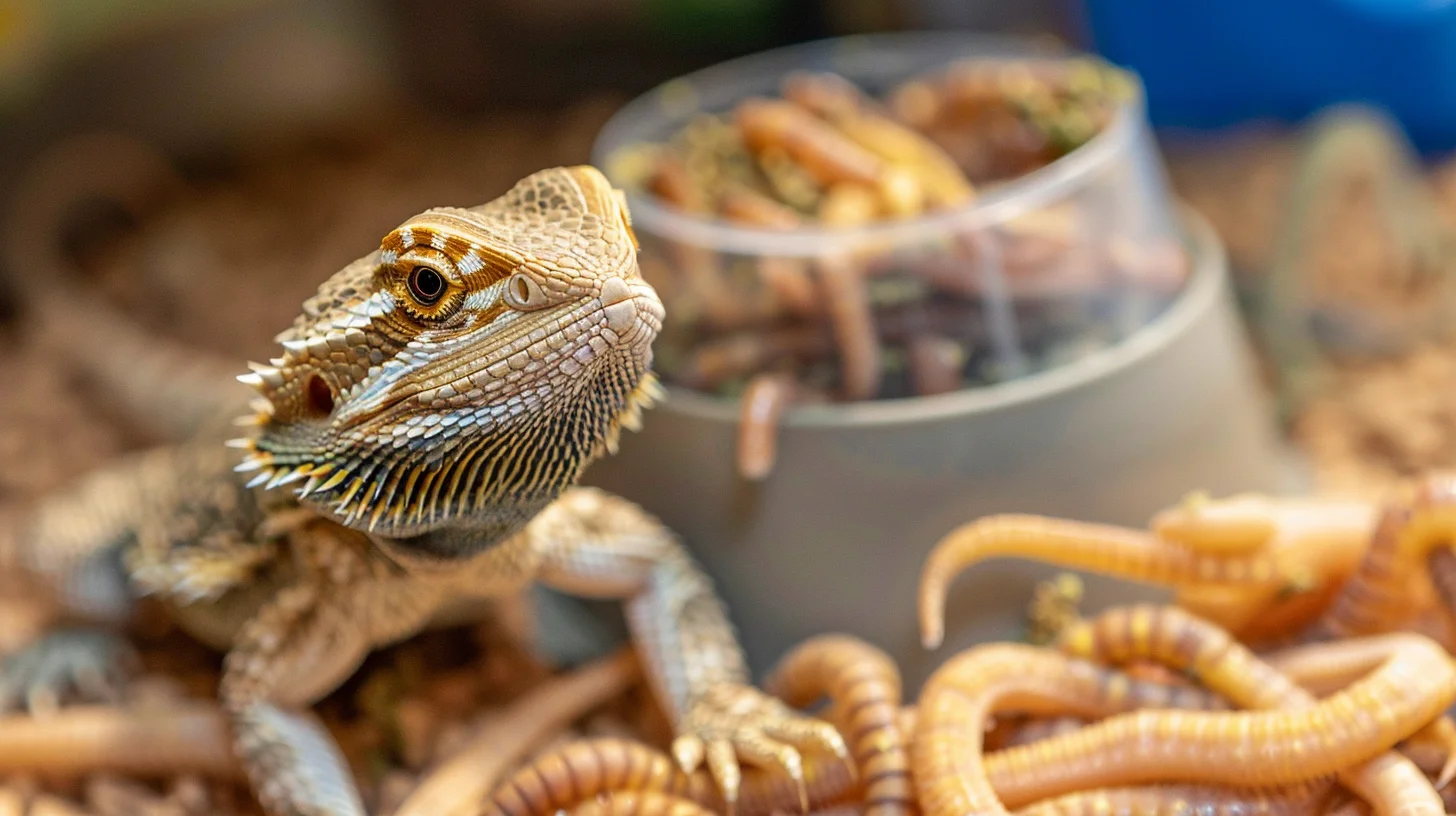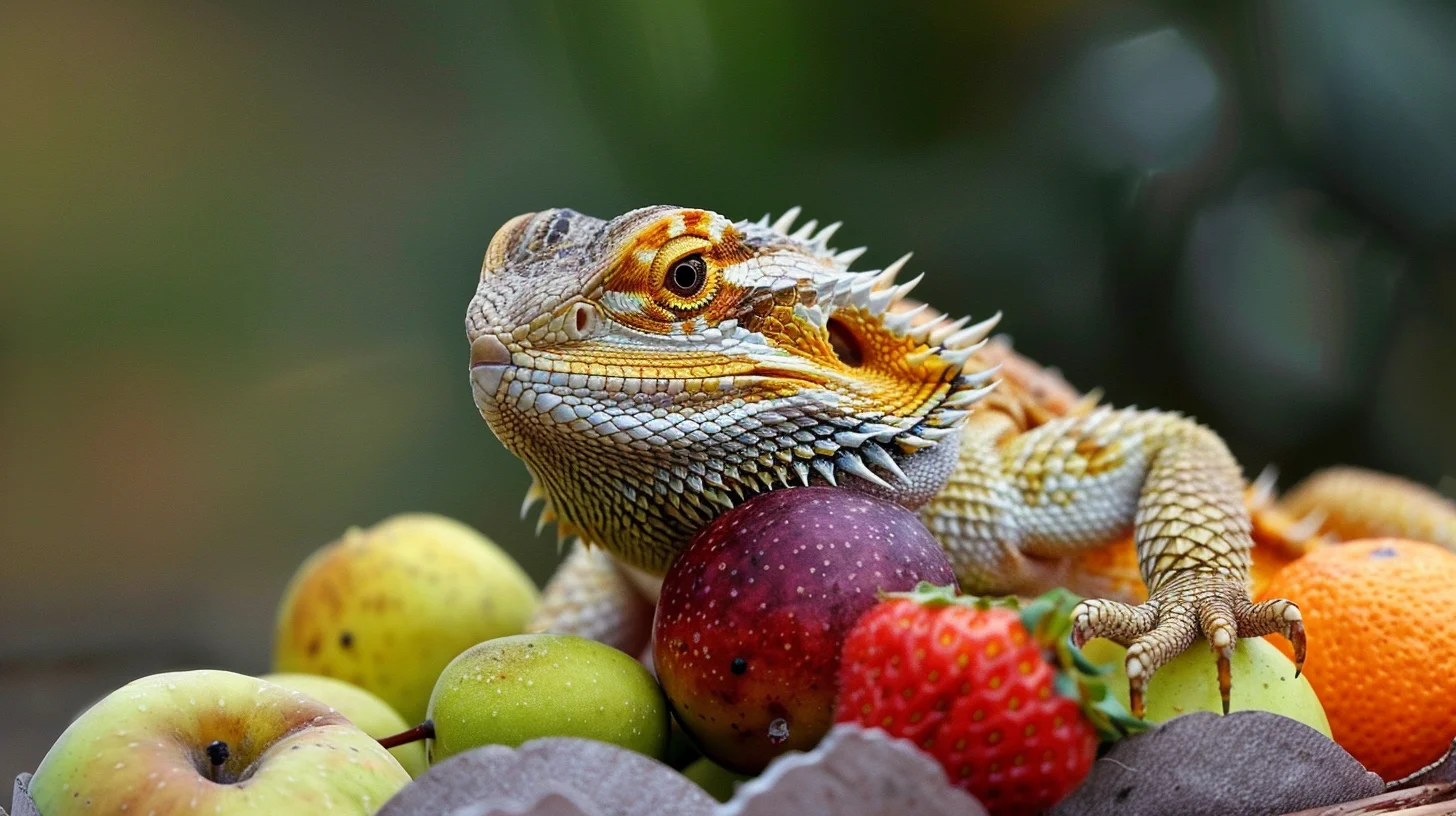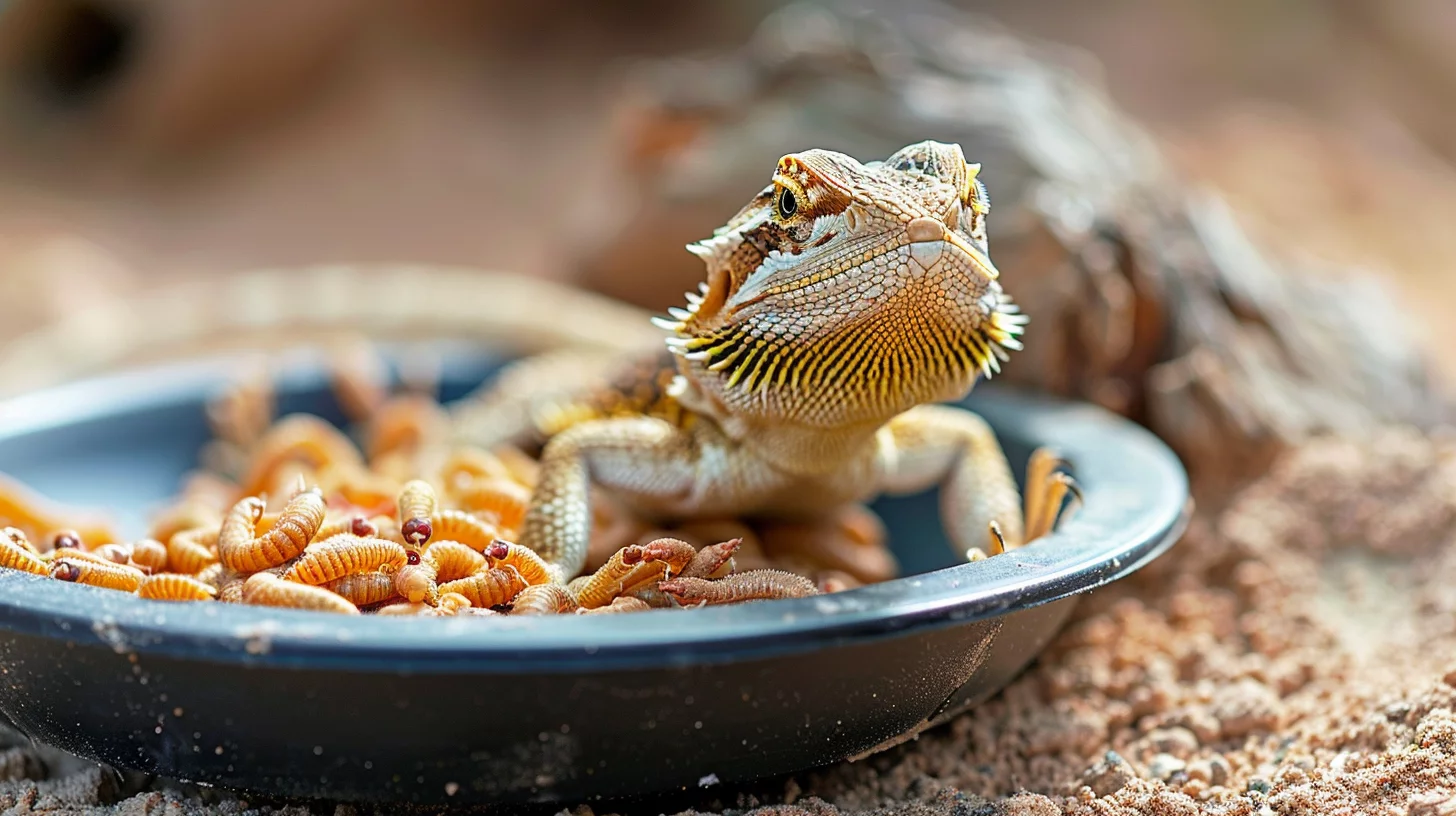Bearded dragons are fascinating and popular pets that require a balanced diet to maintain their health and well-being. As omnivores, they need a variety of foods, including vegetables, to thrive. In this comprehensive guide, we’ll explore what veggies can a bearded dragon eat, their dietary needs, and how to ensure your pet receives the proper nutrition.
Understanding Bearded Dragons’ Dietary Needs
Bearded dragons are native to Australia and have evolved to eat a diverse array of foods in the wild. In captivity, it’s essential to provide them with a diet that mimics their natural eating habits. A well-rounded bearded dragon diet should consist of:
- 50-60% vegetables
- 30-40% proteins (insects, such as crickets or dubia roaches)
- 10-20% fruits (occasional treats)
Dr. Mark Mitchell, an exotic animal veterinarian, emphasizes the importance of variety in a bearded dragon’s diet: “Offering a range of vegetables not only provides essential nutrients but also helps prevent boredom and encourages natural foraging behaviors.”
Vegetables That Are Safe for Bearded Dragons
When it comes to choosing veggies for your bearded dragon, focus on nutrient-dense options that are low in oxalates and phosphorus. Some excellent choices include:
- Dark leafy greens: collard greens, kale, mustard greens, turnip greens
- Squash: acorn squash, butternut squash, pumpkin
- Bell peppers: red, green, yellow
- Carrots
- Okra
- Cactus pad (prickly pear)
- Cucumber
- Asparagus
- Broccoli and cauliflower (in moderation)
How to Prepare Veggies for Your Bearded Dragon
To ensure your bearded dragon receives the maximum benefits from their veggies, follow these preparation tips:
- Wash and clean the vegetables thoroughly to remove any dirt, pesticides, or debris.
- Chop or shred the veggies into bite-sized pieces appropriate for your bearded dragon’s size.
- Mix different veggies to create a colorful and diverse salad that encourages your pet to eat.
Bearded dragon owner Sarah Thompson shares her experience: “I like to create a ‘veggie confetti’ for my beardie by finely chopping a variety of greens and vegetables. It’s not only visually appealing but also ensures he gets a wide range of nutrients.”
Vegetables to Avoid or Feed Sparingly
While many vegetables are safe for bearded dragons, some should be avoided or fed sparingly due to their high oxalate content or potential to cause digestive issues. These include:
- Spinach, beet greens, and Swiss chard (high in oxalates)
- Avocado (toxic to bearded dragons)
- Onions and garlic (can cause digestive issues)
- Lettuce (low in nutrients)
- Celery (stringy and difficult to digest)
Frequency and Quantity of Veggie Feedings
The frequency and quantity of veggie feedings depend on your bearded dragon’s age and size:
| Age | Frequency | Quantity |
|---|---|---|
| Baby | Daily | A few small pieces, gradually increasing |
| Juvenile | Daily | Salad bowl sized for their body |
| Adult | Every other day | Salad bowl sized for their body |
Monitor your bearded dragon’s weight and adjust portions accordingly to maintain a healthy body condition.
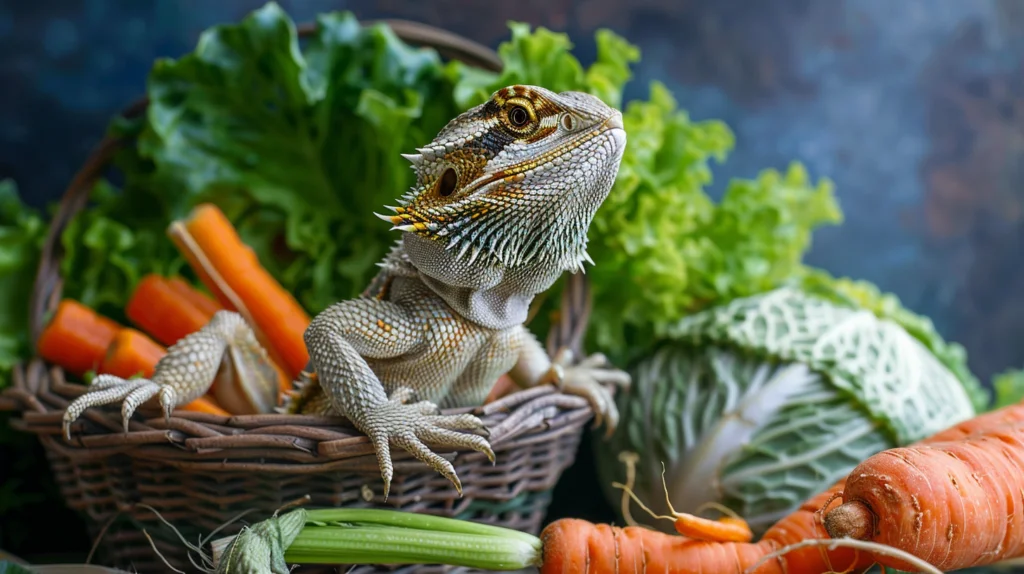
Supplementing with Calcium and Vitamin D3
In addition to providing a balanced diet, it’s crucial to supplement your bearded dragon’s veggies with calcium and vitamin D3. Calcium is essential for strong bones and proper growth, while vitamin D3 helps with calcium absorption.
To supplement, dust the veggies with a calcium powder designed for reptiles. Provide vitamin D3 through either natural UVB lighting or dietary supplements. Consult with your veterinarian to determine the appropriate amounts for your bearded dragon’s specific needs.
“Calcium deficiency can lead to metabolic bone disease, a painful and potentially life-threatening condition. On the other hand, over-supplementation can cause health issues as well. Finding the right balance is key.” – Dr. Laurie Hess, exotic animal veterinarian
Introducing New Veggies to Your Bearded Dragon’s Diet
When introducing new veggies to your bearded dragon’s diet, do so gradually to allow their digestive system to adjust. Mix small amounts of the new veggie with familiar favorites and observe your pet’s response. If they show no adverse reactions, slowly increase the proportion of the new vegetable over time.
Remember to remove any uneaten veggies from the enclosure to prevent spoilage and maintain a hygienic environment.
Common Questions About Bearded Dragons and Veggies
- Can bearded dragons eat frozen veggies?
While it’s best to offer fresh veggies, you can occasionally feed your bearded dragon thawed frozen vegetables. Avoid canned or pickled veggies, as they often contain added salt and preservatives. - How long can I store fresh veggies for my bearded dragon?
Store fresh veggies in the refrigerator for up to 3-5 days in an airtight container. Discard any veggies that show signs of spoilage or mold. - Can I feed my bearded dragon veggies from my garden?
Yes, you can feed your bearded dragon veggies from your garden as long as they haven’t been treated with pesticides or herbicides. Thoroughly wash and clean the veggies before offering them to your pet. - What should I do if my bearded dragon refuses to eat veggies?
If your bearded dragon is reluctant to eat veggies, try the following tips:
- Offer a variety of veggies to find their preferences
- Chop the veggies finely or blend them into a puree
- Mix veggies with favorite insects or fruits to encourage eating
- Ensure the veggies are fresh and at room temperature
Conclusion
Providing your bearded dragon with a balanced diet that includes a variety of safe and nutritious veggies is essential for their overall health and well-being. By understanding what veggies can a bearded dragon eat, how to prepare them, and how often to offer them, you can ensure your pet thrives in your care.
Remember to consult with a reptile veterinarian for personalized dietary advice tailored to your bearded dragon’s specific needs. With proper nutrition and care, your bearded dragon can live a long, healthy, and happy life.
